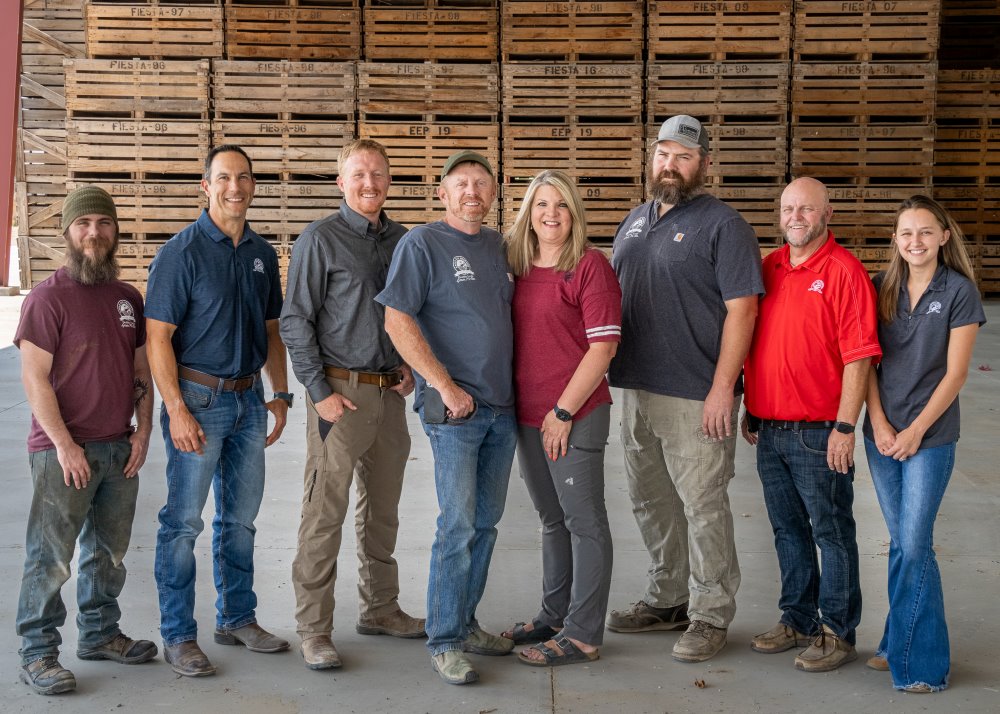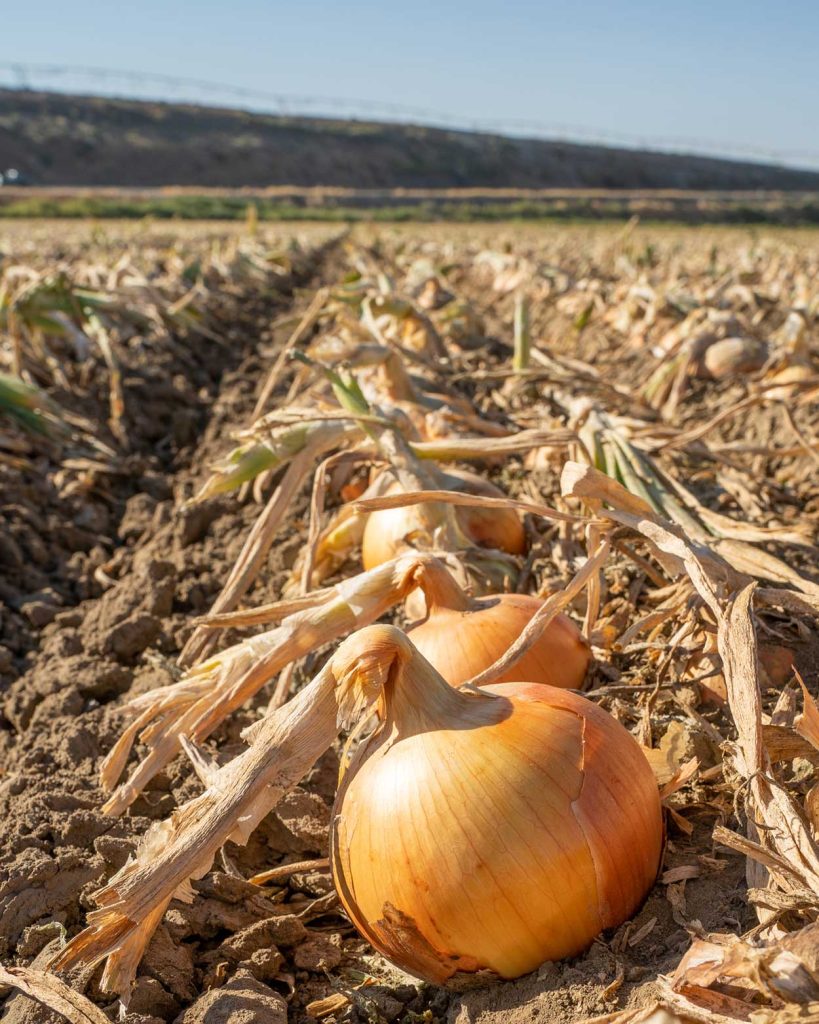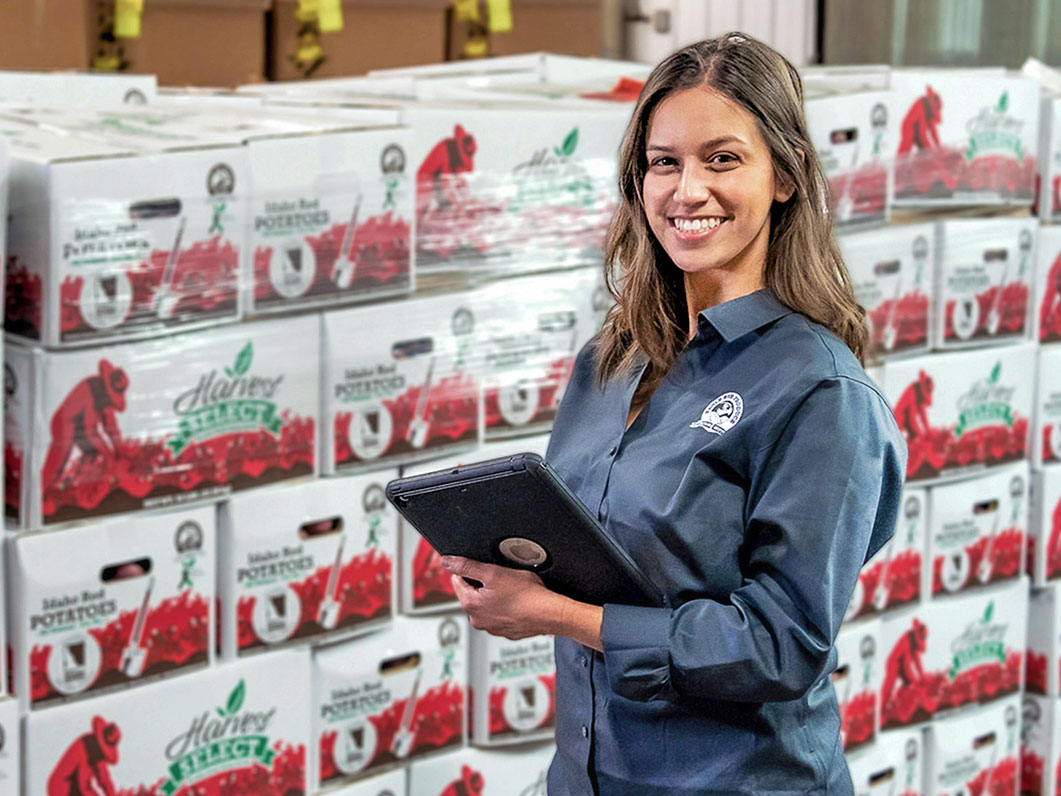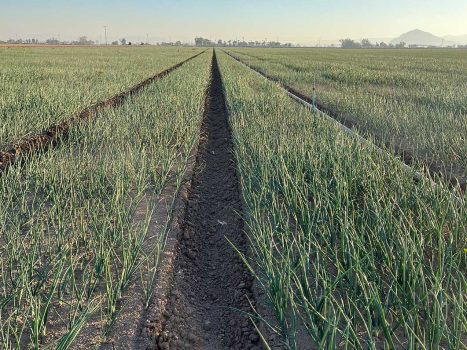Featured image: Eagle Eye Food Safety Compliance Manager Antoinette Burke. This photo and others are courtesy of Eagle Eye Produce Company.
In the wake of recent years marked by onion recalls attributed to salmonella outbreaks, the onion industry stands at a crucial juncture. The Center for Disease Control and Prevention’s (CDC) investigations have left us with inconclusive evidence regarding the original source of these outbreaks, leaving a cloud of uncertainty over the beloved vegetable. Despite fresh whole onions securing a respectable fourth position on the 2023 “Clean 15” list by the Environmental Working Group (EWG), which highlights the safest vegetables for consumption, the industry continues to grapple with the repercussions of each recall announcement.
Acknowledging the resilient standing of onions on the “Clean 15” list, the EWG notes that the majority of the produce listed as the “cleanest” boasts a protective outer layer removed before consumption – a characteristic shared by onions. As a steadfast advocate of the onion industry, OnionBusiness.com recognizes the need to address these challenges head-on. With established relationships with growers and shippers across the United States, we embark on a mission to educate customers and consumers alike about the paramount importance of food safety and the health benefits associated with our cherished onions.
In the pursuit of fostering a positive narrative surrounding the onion industry, OnionBusiness.com is excited to launch a new series for 2024. Our inaugural article shines a spotlight on Eagle Eye Produce (EEP), delving into their practices and commitments to ensure well-developed food safety measures within their onion program. Join us on this journey as we strive to empower consumers with knowledge and highlight the dedication of industry players in securing the health and well-being of onion enthusiasts nationwide.
Established in 1996, Eagle Eye Produce has grown from its humble beginnings in Roberts, Idaho, to become a leading force in the produce industry. The company specializes in onions, potatoes, watermelon, and a variety of mixed dry vegetables, including squash, peppers, cucumbers, and tomatoes, as well as value-added products, and its commitment to food safety has set it apart in the competitive market.
Operating on a 365-day produce program, Eagle Eye Produce places a robust emphasis on guaranteeing the safety and quality of its products. A noteworthy testament to this commitment is exemplified through their onion program, particularly in Nyssa, OR. This program is overseen by Marc Bybee, the owner of Fiesta Farms, and is now jointly managed under the combined ownership of Fiesta and EEP.
The partnership between Fiesta Farms and Eagle Eye Produce traces its roots back about a decade, formalized in 2018. Fiesta Farms, rooted in the 1940s, boasts a storied history in onion cultivation, making it an ideal collaborator for Eagle Eye Produce. Bybee, who rejoined the family business in 1994, has played a pivotal role in implementing and advancing the food safety program.

Guided by Bybee and his dedicated team, including Kylee Schulthies, Niel Berdowski, and the entire production staff, the dynamic nature of their food safety program is emphasized. Bybee expresses, “Our food safety program is always adapting and changing to meet both new personal goals and adhere to new standards. We consistently implement both physical and policy improvements.” Bybee also commends the expertise of full-time Compliance Manager Antoinette Burke for challenging standards that may not be directly relevant to their specific operations.
Burke ensures that all produce categories surpass the food safety requirements set by government agencies and customer specifications. She highlights the success of the Nyssa, Oregon operation for achieving a remarkable 99% audit score during a recent GFSI audit. She notes, “Onions are unique in that at the maturity and the curing stage the onion never comes into contact with water. They are cured, and that outer skin provides them with an extra barrier of protection.” This attention to detail in risk assessment is a key factor in their food safety program and emphasizes the limited risks associated with growing crops for human consumption, especially with onions.

The Nyssa, OR production team goes the extra mile to ensure transparency and adherence to high standards. Marc Bybee describes the use of technology for documentation and rigorous processes such as environmental monitoring, ATP monitoring, regular equipment sanitization, and random site swabbing. Eagle Eye Produce’s commitment extends to membership in “Certified Onion” (COI), where field onion samples are independently tested for acceptable chemical residue levels.
Despite challenges faced by the industry, Eagle Eye Produce has employed a three-pronged approach to reassure partners and consumers about the safety of their products. By promoting the health benefits of onions, highlighting the dedicated people involved in the production process, and emphasizing personal care for the product, Eagle Eye Produce aims to build confidence in their offerings.
Eagle Eye Produce also believes in industry collaboration and supports research aimed at practical problem-solving. Antoinette Burke points out ongoing research partnerships with Oregon State University’s Waite-Cusic Lab, expressing hope that this collaboration will provide tools and resources to continuously improve food safety efforts.
In an era where consumers prioritize food safety, Eagle Eye Produce stands out as an exemplary model for the industry. By combining a proactive food safety approach with innovation and collaboration, the company is not only meeting but exceeding expectations in delivering safe, high-quality produce to the market.
Learn more about Eagle Eye Produce at: Healthy Foods Grown For You – Eagle Eye Produce
If you would like your company’s food safety story included in our 2024 Food Safety series, we need to hear from you! Please send us an email at: info@onionbusiness.com



